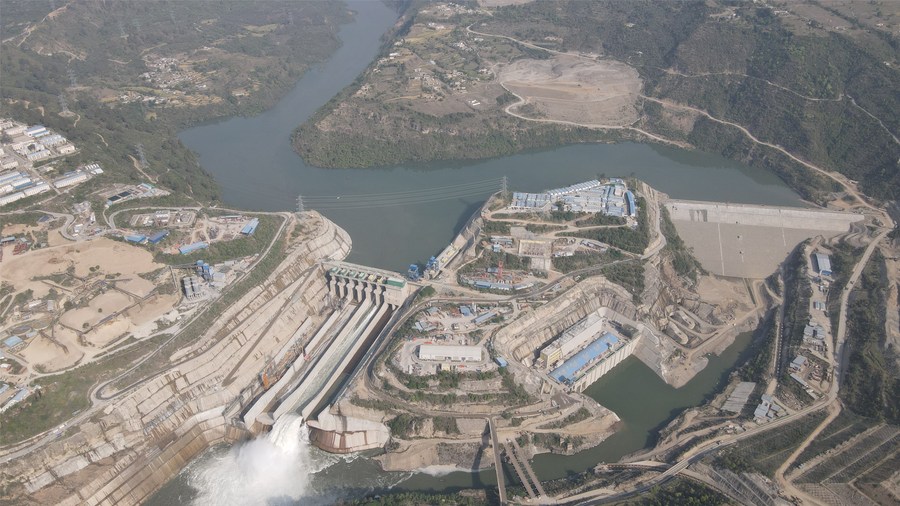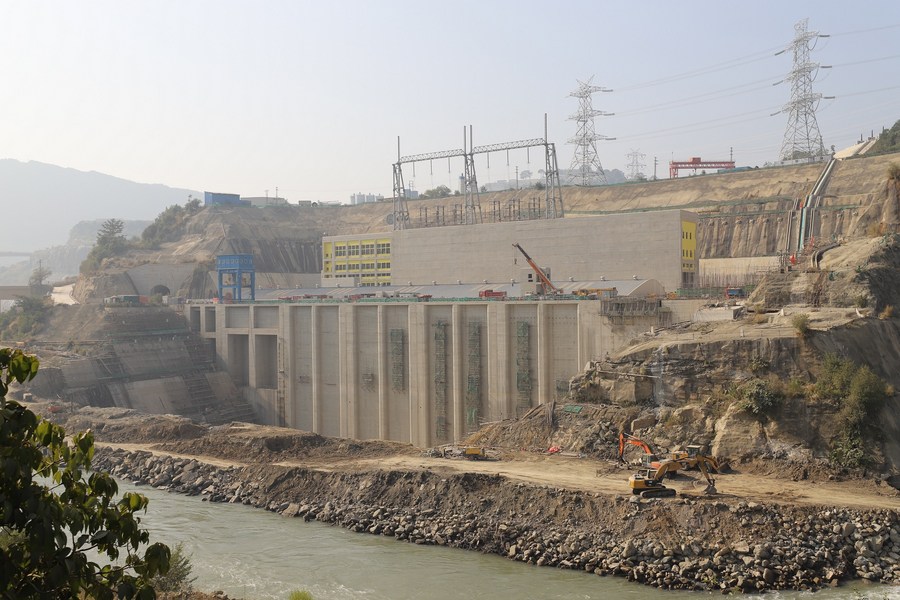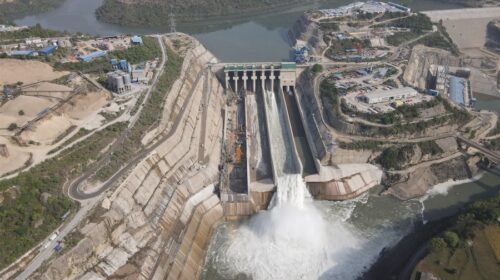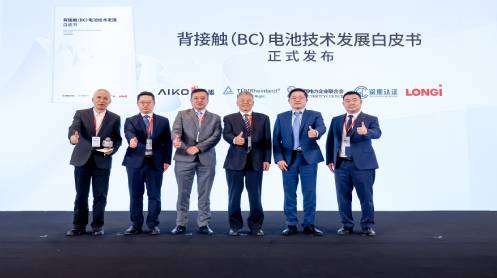Life has taken an incredible turn for 24-year-old Qais Qadeer when he, as a scholarship student a few years ago, joined China Three Gorges Corporation, a Chinese company constructing a hydropower plant on Pakistan’s river Jehlum.
Now working as an operation engineer at the Karot hydropower project in the country’s eastern Punjab province, Qadeer told Xinhua that he is living a successful and fulfilling life that a person like him could never dream of.
The project is one of the China-aided power projects being built in the country under the framework of the China-Pakistan Economic Corridor. Since the groundbreaking of the project in April 2015, the Chinese and Pakistani engineers and workers at the project have jointly overcome different challenges including the COVID-19 pandemic.
Cherishing his unbelievable journey, he said he gets to learn a lot from Chinese instructors and supervisors, both during his studies in China and at the hydropower station in Pakistan.
“I was a fresh graduate when I joined this project after completing my studies in China, but the environment here was so conducive that I adopted all the techniques in a very quick manner … I am proud to be part of the project which will immensely benefit the people of Pakistan in economic and social ways besides alleviating energy shortage,” he said.

Aerial photo taken on April 9, 2022, shows a view of the Karot Hydropower Project in Punjab province, eastern Pakistan. (CTG/Handout via Xinhua)
The Karot hydropower project would facilitate Pakistan to achieve renewable energy goals by producing clean and cheap energy, Noorul Arifeen Zuberi, a senior advisor of the China Three Gorges South Asia Investment, said.
The 720-megawatt hydropower project is expected to annually generate some 3.2 billion kilowatt-hours of clean electricity once put into full commercial operations in June this year, reducing 3.5 million tons of carbon dioxide emissions per year.
Based on the Chinese standards and technologies, the project is of tremendous importance as it will not only help Pakistan improve its energy structure but will also promote the sustainable development of the local economy and society while contributing to the global goal of carbon neutrality, he said.
Zuberi said over 4,000 jobs, directly or indirectly, were provided to local people every year and students were awarded fully-funded scholarships, adding that billions of rupees were paid by the company in taxes to the Pakistani government during the construction phase.
Under its community investment programs, the Chinese company also built a number of public welfare projects including schools, hospitals, bridges and roads, bringing a lot of convenience to local communities.

Photo taken on Nov. 19, 2021, shows a view of the powerhouse of the Karot Hydropower Project in Pakistan’s eastern Punjab province. (Xinhua/Li Hao)
Talking to Xinhua, Abdul Basit, a school teacher at a government school in Karot, said a lot have changed around him since the initiation of the project in 2016.
“There was only one room for the school and I remember we used to teach students under trees before the Chinese company bought land in the area and built several rooms, a playground, offices and boundary walls for us,” he said.
Basit said that not only the school, but the company has also built roads and bridges which solved transportation issues for the locals.
“Children and teachers used to walk more than an hour on a muddy track to get to the school. It was an arduous daily routine for us … Now it only takes 10 to 15 minutes and I could not be happier for what they (the Chinese) have done for us,” he said with a radiant smile.
“Chinese brothers not only illuminated our homes but also our hearts with their selflessness and valuable assistance for Pakistan,” Basit added.






